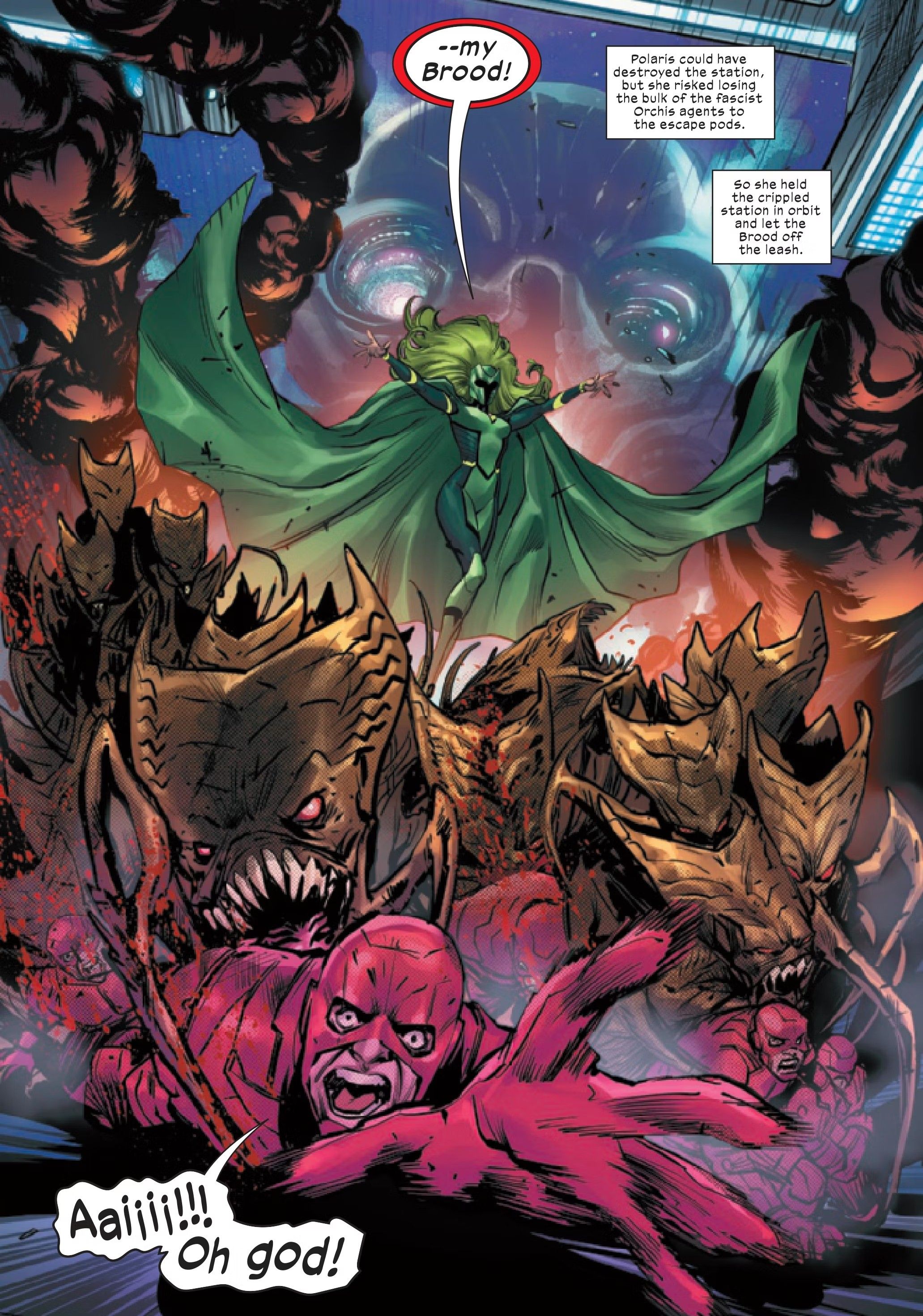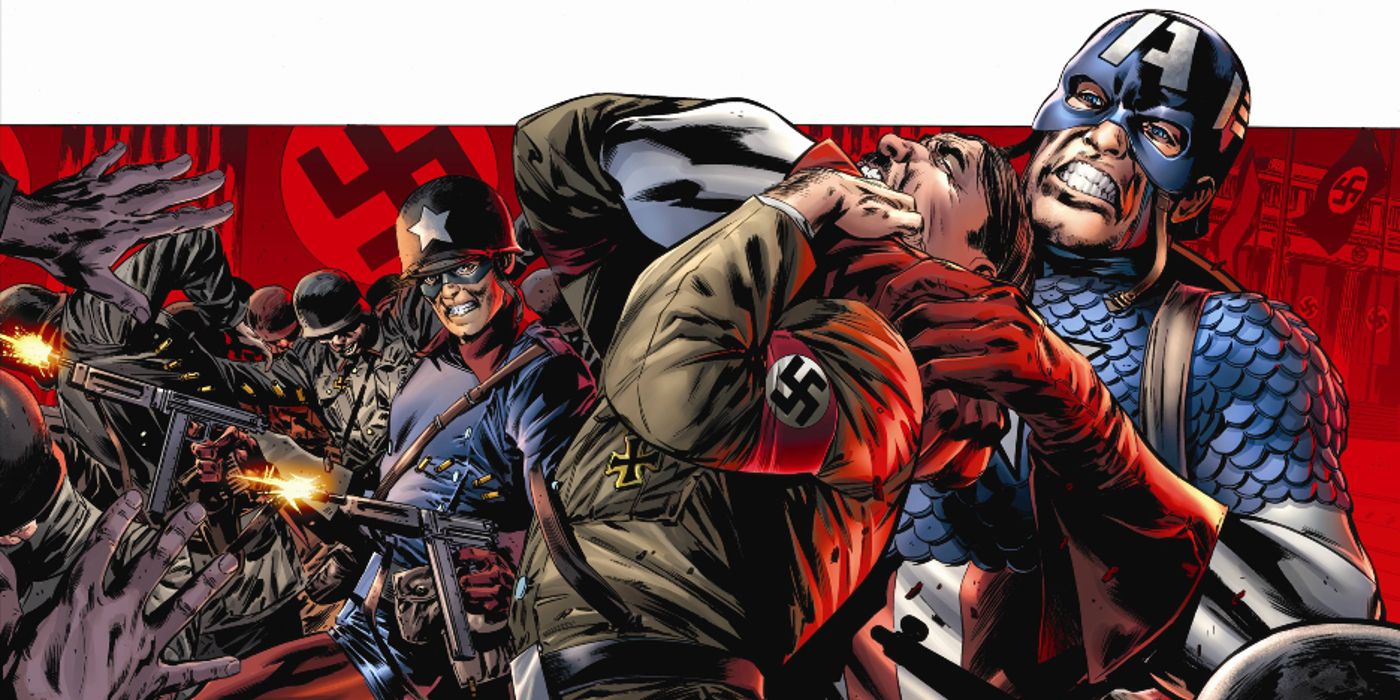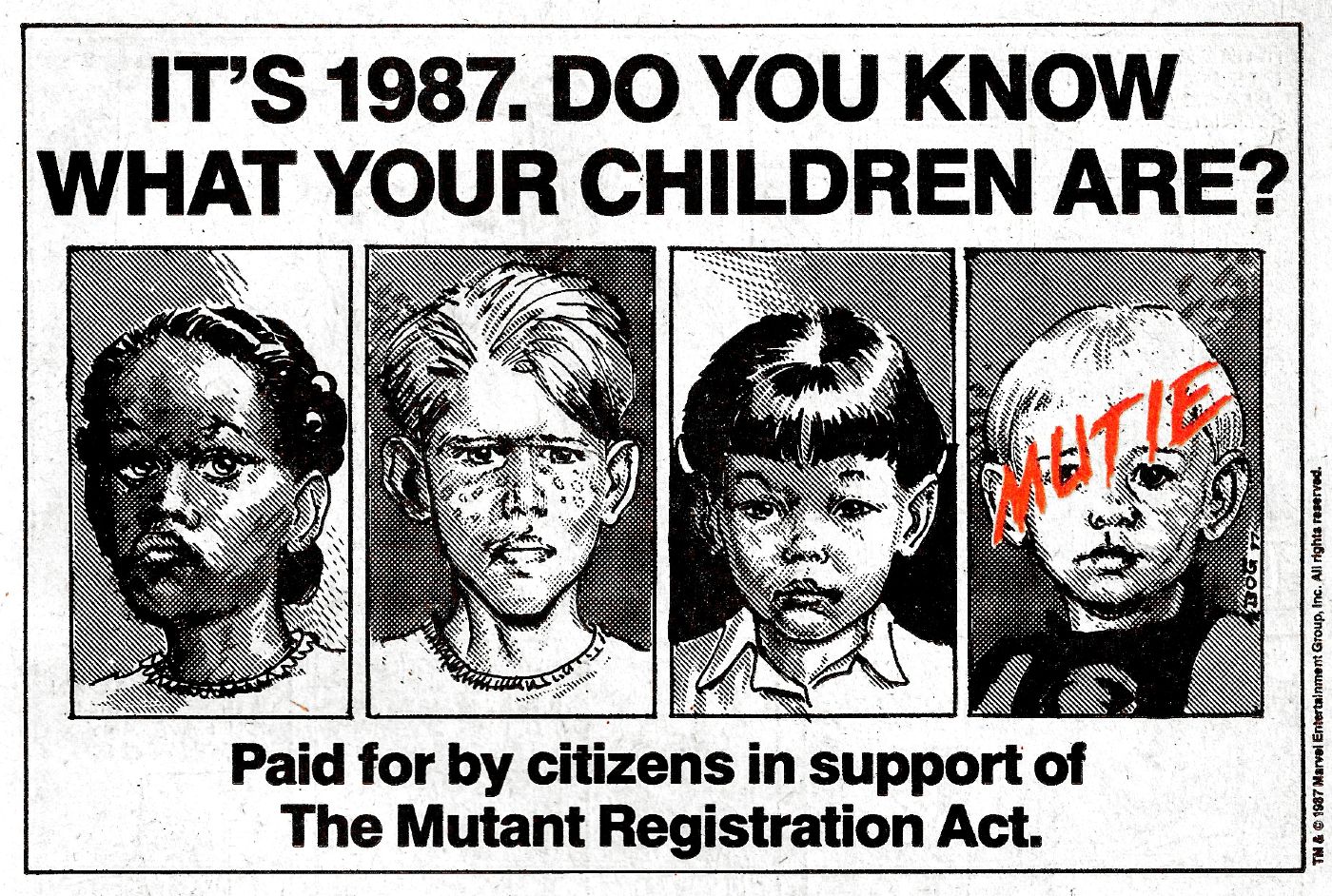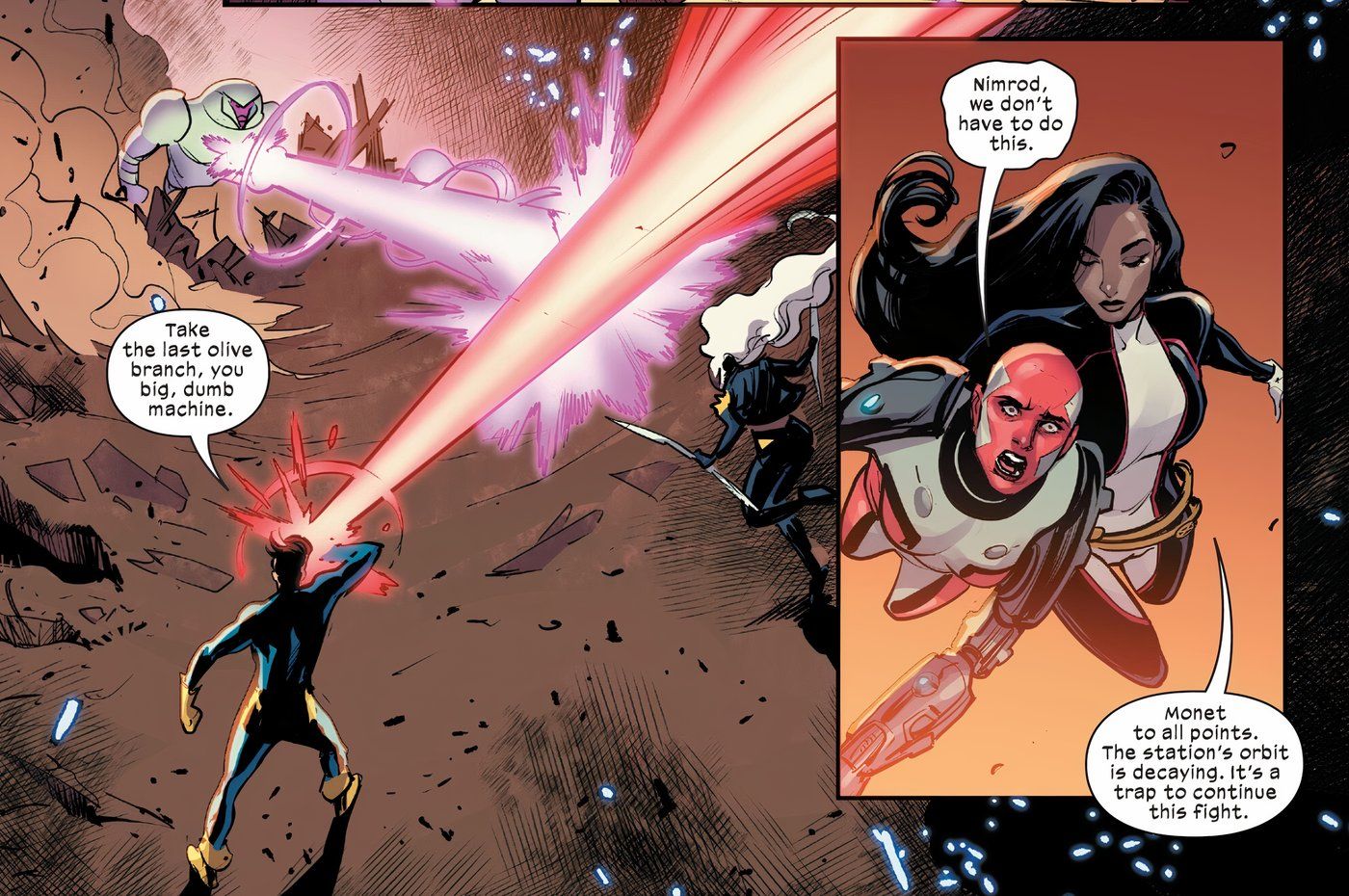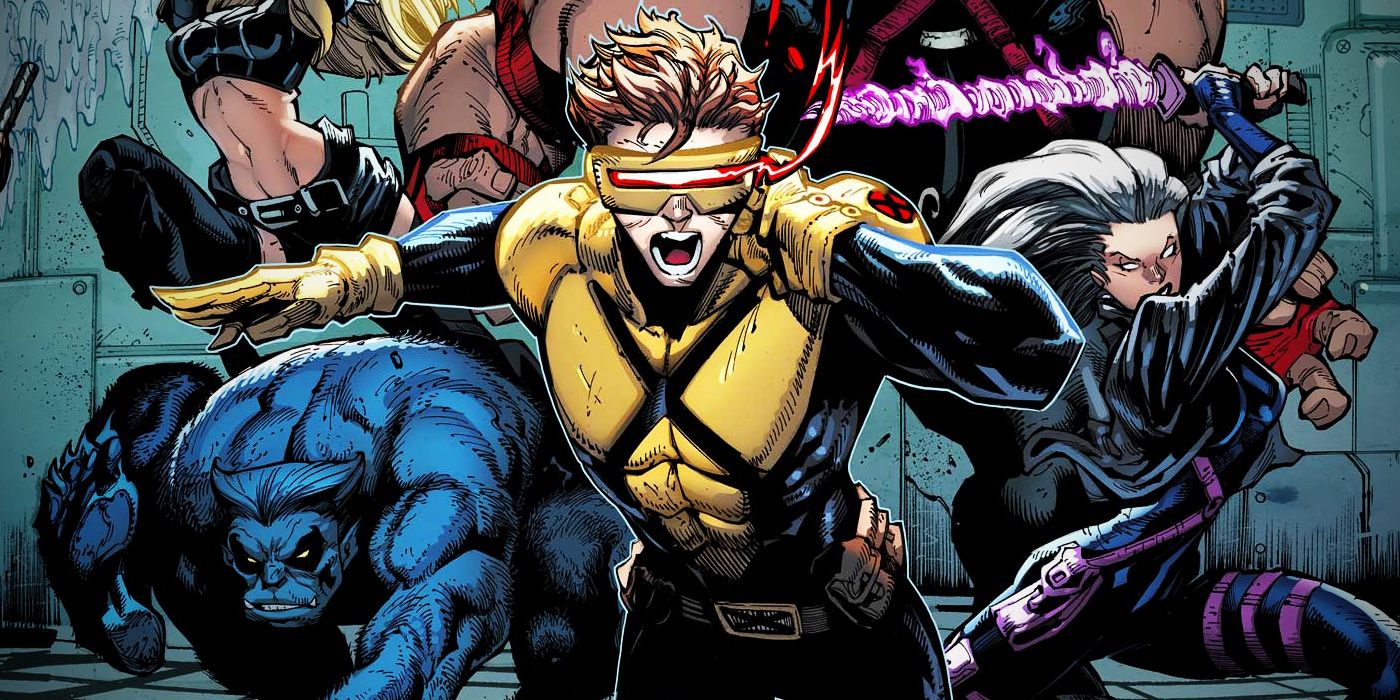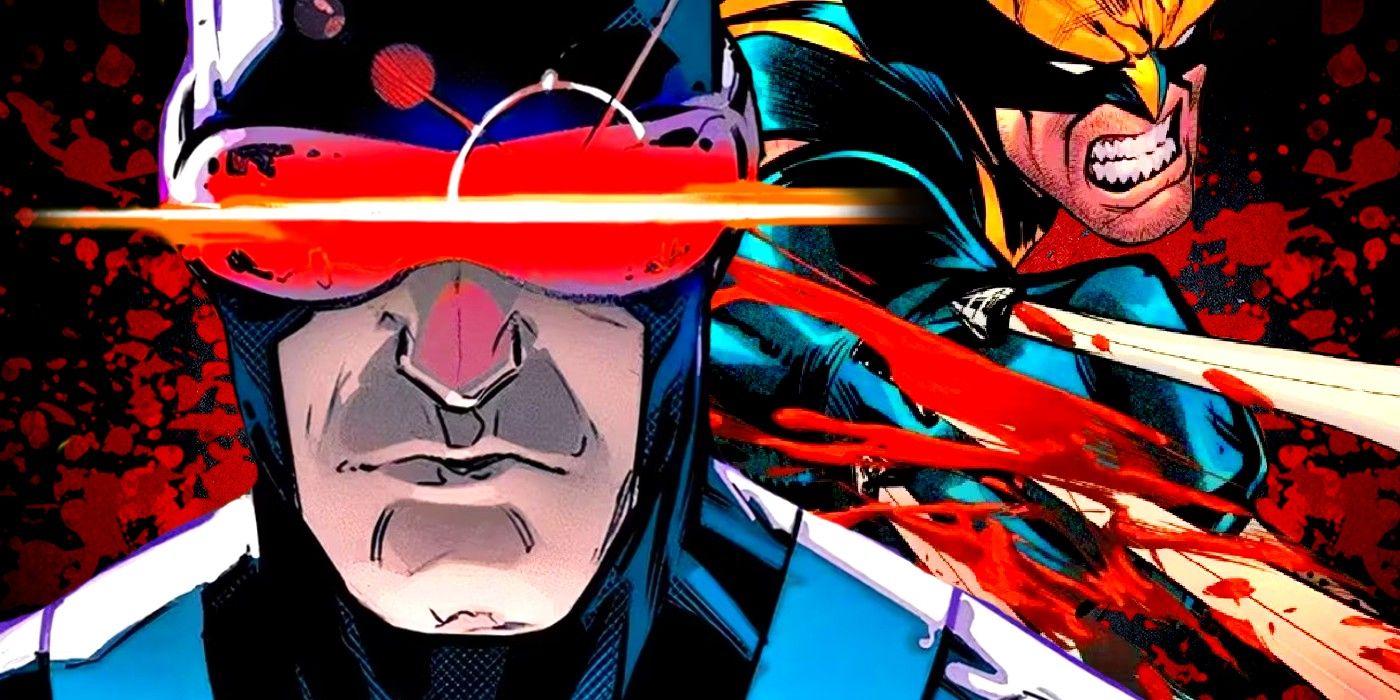
Marvel’s Senior Editor for X-Men Comics’ Tom Brevoort has shared his displeasure with how the past five years of comics have turned Marvel’s mutant heroes into “Freely Killers,” Promised fans that the new ‘from the ashes’ era will keep the superheroes to a “Higher standard.” The notes are The latter in Brevoort’s blunt and relatively controversial commentary on X-Mens Krakoan eraSpanning from 2019-2024, the X-Men team up with their villains to create an island nation.
The comments are coming through Man with a hat – Brevoort’s Substack, where he occasionally answers fan questions. Asked by a fan if he intends for the X-Men’s new era to be less morally gray than the five-year span that just ended, Brevoort says his big complaint about the finale of the X-Men’s war against the Anti-mutant Orchis group was How casually and joyfully the X-Men dispatched their attackers.
The X-Men/Orchis War saw the soldiers of Orchis attempt genocide against the X-MenFraming them for war crimes while seemingly killing hundreds of mutants and exiling thousands from other off-worlds. Orchis unleashed armed patrols to hunt down and apprehend mutants, as well as unleashing an army of new sentinels to kill mutants on sight. Once the X-Men’s fight-back began, they killed Orchis by the dozens. Brevoort says:
My philosophy boils down to that, Levi; I don’t think X-Men should be casual or joyous killers. While they’ve certainly been in situations where lethal force has been called for and appropriated over the years, I don’t think that should be their default setting. And one of my big complaints about the ending of the Orchis War was how easily and even joyfully some of the X-Men killed their enemies. That’s good for some characters – no one will question Wolverine killing a bunch of people (although I feel that even he has certain rules of engagement that he will honorably try to follow). But seeing Nightcrawler teleport a couple of hapless Orchis guns into deep space and leave them to die just felt wildly out of character and wrong to me. If our heroes are to be heroes, they must be held to a higher standard than that. … I’m sure we’ll have a lot of moral gray area we can explore, but I think the days when the X-Men would casually throw around lethal force and laugh about it afterwards are over now.
Related
The X-Men are fighting for the survival of their nation and species, and it’s easy to see Brevoort’s description of them as “Superheroes” During this period as simplistic.
X-Men’s New Senior Editor calls out the X-Men vs Orchis War
The X-Men slaughter Orchis soldiers in their battle for survival
Brevoort is certainly right that the X-Men are particularly bloodthirsty towards Orchis. Standout moments include Fall from the House of X #1 (Gary Duggan and Lucas Werneck), which began with the benevolent Colossus throwing out Orchis’ soldiers for Wolverine to shred to pieces, with the two confused about what to call their new combo move. In the next issue, Polaris unleashes an army of brooding aliens on Orchis’s satellite base, gloating as they are literally being eaten alive. Emma Frost also murders Orchis members with hi-tech knuckle dusters created for her by Tony Stark, and a jaw-dropping sequence in X-Men #25 saw Kate Pryde use her phasing powers to slaughter a unit of Orchis agents.
However, this issue – from Gerry Duggan and Stefano Caselli – also included the sentiment that offers the best counterargument to Brevoort’s critics. In her fight against the Orchis agents, the narrator notes that, “The aggressor sets the tone in any conflict, and overnight, Orchis was a cold war hot.” During the end of the Krakoan era, the X-Men are fighting for the survival of their nation and species, and it’s easy to see Brevoort’s description of them as “Superheroes” How simplistic, both in terms of X-Mens story and the real-world implications of his story. It is also important to appreciate that from beginning to end, the Krakoan era asked difficult questions about the morality of its characters.
At the end of the Krakoan era, the X-Men are fighting a literal war after an attempted genocide – under these conditions, even Captain America has been known to crack wise while killing Nazis.
Related
The Krakoan era was about moral grace
The X-Men’s fight for survival crossed several major lines
While the X-Men living together in true paradise was idyllic on paper, the Krakoan Era established from the beginning that they were no longer purely heroic. House of X And Powers of X (both written by Hickman, drawn by Pepe Larraz and RB Silva respectively) made it clear that in order to establish themselves as a nation, the X-Men had to accept their former villains back into the fold, even giving them positions of immense political power. Professor Xavier was portrayed as an unsympathetic character who built Krakoa on a lie, secretly planning with Magneto for a predicted future where AI would wipe out the mutantkind.
The moral complexities ran throughout the series, from hellions – where Xavier and Magneto orchestrate a genocide of potentially redeemable AI ‘Smiley’ Sentinels – to X-ForceWhere the long-time hero animal was gradually corrupted to the core by his off-the-books efforts to keep Krakow ‘safe’. At its best, the Krakoan era wrestled with the question of how individual morality interacts with governance, as well as what tactics can be justified against an enemy that poses a genuine existential threat to a vulnerable group.
Related
While the X-Men did With happily killing members of Orchis in their final confrontation, they are fighting against a genocide in a situation where they have arguably tried every other option, including distributing miracle medicine worldwide to create international goodwill. The end of the Kraken era saw the X-Men fighting a literal war against a genocidal enemy who had the upper hand – under the conditions, even Captain America has been known to crack wise while killing Nazis.
The X-Men/Orchis War was not about superheroes fighting supervillains, but about what an oppressed group is morally permitted to do when their oppressors come for them…
Related
The X-Men are no ordinary superheroes
The X-Men fight for the survival of the species, so where is the line?
Brevoort says that “If our heroes are going to be heroes, they must be held to a higher standard than this.” This makes sense to some degree – it’s funny to see costumed crime-fighters revealing in death – but it also underestimates the use of the mutant metaphor during the Krakoan era. Unlike the Avengers or Fantastic Four, the X-Men aren’t people with unique abilities who just choose to do good – they’re people who, by their genetics, are constantly targeted for death. While they are Brave in choosing to protect others, they do not fit the ‘superhero’ descriptor.
The Krakoan Era was very aware of the ‘mutant metaphor’ in Marvel Comics. The X-Men’s mutant status is used as an analog for race, sexuality, gender identity, race, and more in Marvel Comics. The Krakoan era used it in the same ways, while also discussing nationality and taking a metatextual approach, acknowledging that the mutant metaphor is far from perfect – as Xavier says in Kieron Gillen and Lucas Werneck’s. Immortal X-Men #10:
Being a mutant shares traits with other persecuted groups, but it is unlike them in one way. We are dangerous.
The X-Men/Orchis War was not about superheroes fighting supervillains, but literally and metaphorically about what an oppressed group is morally permitted to do when their oppressors come for them – and also allow space to be about broader ideas rather than reflecting the experience of any one group. The end of the Krakoan Era inevitably made a moral statement about real-world oppression and real-world conflict, and it’s worth commenting on.
Related
Joyful killing was Out of character for characters like Nightcrawler and Kate Pryde, but a) that was very much the point of many of the Krakoan Era’s stories and b) X-Men Dedicated significant page-space to discuss how the war for their existence is damaging (and potentially corrupting) mutant heroes. It is also worth noting that the US The last of Krakoan Era did Show certain heroes who choose mercy over violence – Cyclops and Storm even offered to spare the mutant-killing sentinel Nimrod, despite the fact that he had personally slaughtered many of their closest friends.
Brevoort says that from the ashes ‘X-Men will do “What is right, not what is easiest,” But at its best, the Krakoan Era embraces moral complexity.
Of the Ashes has very different goals than the Krakoan era
The X-Men are superheroes again, with all the streaks that implies
While Brevoort promises that X-Men’s new status quo still has gray areas to explore, it’s notable that he’s so specific about his standard for mutantkind’s behavior. Brevoort made it clear that ‘From the Ashes’ is intended to welcome in new readers, sidelines complex characters and offers “Something for Everyone” – something he says the latter stages of the Krakoan Era have failed to do.
Related
While From the Ashes’ creative teams are already producing great stories, it’s hard not to see the new era of X-Men As an attempt to sanitize and stabilize the property after five years of ambitious ideas and creative risks. Brevoort says that from the Ashes’ X-Men will do “What is right, not what is easiest,” But the Krakoan era was intentional About Moral complexity. Crucially, the moral complexity of circumstances that, although enhanced by superpowers and brightly colored costumes, are relevant to the real world.
At least as things appear so far, the transition from the Krakoan Era to From the Ashes has seen the X-Men Franchises simplify their moral outlook, consciously stepping back from complexity of all types to appeal to new and returning readers. Although this is not mutually exclusive to large X-Men Stories, this is an approach that can already be found in books with The Avengers, Fantastic Four, Spider-Man, Captain Marvel, Iron Man and more. Hopefully, Marvel still has enough big questions to make X-Men Feel like worthy and unique.
Source: Tom Brevoort, Man with a hat
